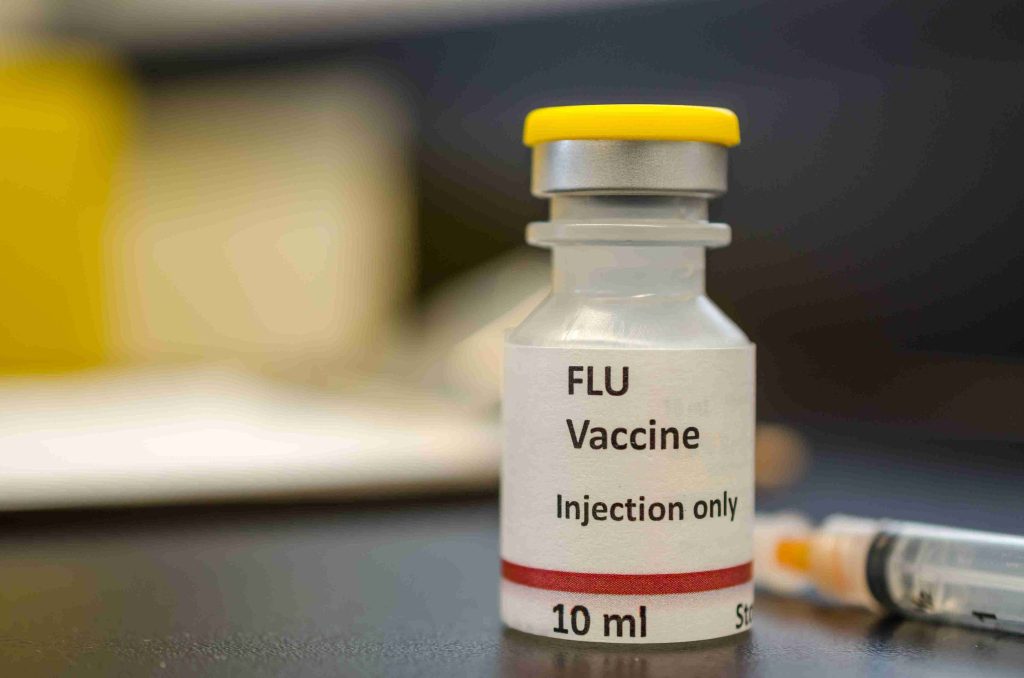Medically Reviewed by Dr Welras Long (M.B.B.S, Singapore. MRCS, England)
In recent years, the importance of flu vaccination has become increasingly recognized as a vital measure for protecting public health. However, despite the overwhelming evidence supporting the safety and effectiveness of the flu vaccine, numerous misconceptions continue to circulate.
In this article, we will address and debunk some of the most common myths surrounding the flu vaccine, providing accurate information to help individuals make informed decisions about their health.
Myth: The Flu Vaccine Can Give You the Flu
One of the most persistent myths about the flu vaccine is that it can actually give you the flu. However, this is not true. The flu vaccine contains inactivated viruses that cannot cause illness. While some individuals may experience mild side effects such as soreness at the injection site or low-grade fever, these symptoms are temporary and are not indicative of the flu itself.
Myth: Healthy People Don’t Need the Flu Vaccine
Another misconception is that only high-risk individuals, such as the elderly or those with chronic health conditions, need to get the flu vaccine. In reality, the flu can affect anyone, regardless of age or health status. By getting vaccinated, healthy individuals not only protect themselves but also help prevent the spread of the flu to more vulnerable members of the community.
Myth: The Flu Vaccine Doesn’t Work
Some people believe that the flu vaccine is not effective in preventing illness. While it’s true that the flu vaccine is not 100% effective, it significantly reduces the risk of contracting the flu and can also lessen the severity of symptoms if infection does occur. Each year, the flu vaccine is updated to target the strains of flu virus most likely to circulate during the upcoming flu season, making it an essential tool in flu prevention efforts.
Myth: You Only Need to Get the Flu Vaccine Once
Contrary to popular belief, flu vaccination is not a one-time event. The flu virus is constantly evolving, which is why it’s necessary to get vaccinated annually. Each year, researchers develop a new flu vaccine based on the strains predicted to be most prevalent during the upcoming flu season. By getting vaccinated annually, individuals ensure they have optimal protection against the flu.
Myth: Natural Immunity Is Better Than Vaccination
Some people believe that natural immunity acquired from having the flu is superior to immunity conferred by vaccination. While recovering from the flu may provide some level of immunity against that particular strain, it’s important to note that the flu virus can mutate, leading to different strains circulating each year. Vaccination provides targeted protection against the strains included in the vaccine, without the risk of experiencing severe illness associated with the flu.
Myth: The Flu Vaccine Causes Autism
This myth stems from a discredited study that suggested a link between the MMR (measles, mumps, and rubella) vaccine and autism. Numerous studies have since debunked this claim, and there is no credible scientific evidence to support a connection between the flu vaccine and autism.
Myth: Flu Vaccines Contain Harmful Ingredients
Some individuals are concerned about the ingredients in flu vaccines, such as thimerosal, a preservative that contains mercury. However, thimerosal has been used in vaccines for decades and has a long history of safety. Moreover, many flu vaccines are available in thimerosal-free formulations for those who prefer them.
Myth: You Can’t Get the Flu Vaccine If You’re Allergic to Eggs
While some flu vaccines are made using eggs, there are egg-free formulations available for individuals with egg allergies. Additionally, the risk of experiencing an allergic reaction to the flu vaccine, even for those with egg allergies, is extremely low.
Myth: Flu Vaccination Is Only Effective if You Get It Early in the Season
While it’s ideal to get vaccinated before flu season begins, it’s never too late to get the flu vaccine. Even if flu activity is already widespread, vaccination can still provide protection against the remaining months of the season, which can extend into spring.
Myth: Pregnant Women Should Avoid the Flu Vaccine
On the contrary, the flu vaccine is recommended for pregnant women. Pregnant women are at increased risk of severe illness from the flu, and vaccination not only protects them but also provides passive immunity to their newborns during the first few months of life.
Stay Healthy and Flu-Free: Book Your Vaccination Appointment Today!
Don’t let misinformation prevent you from protecting yourself and your loved ones against the flu. At Keystone Clinic & Surgery, we offer comprehensive flu vaccination services to help keep you healthy during flu season. Click here to learn more about our vaccination options and schedule an appointment today. Take the first step toward flu prevention and safeguard your health with the flu vaccine.
References
Paho.org. Debunking Myths About the Flu Vaccine. https://www.paho.org/en/topics/immunization/debunking-myths-about-flu-vaccine
Hopkinsmedicine.org. 11 Flu Myths Debunked. https://www.hopkinsmedicine.org/-/media/files/health/11flumythsinfographic.pdf
Who.int. 5 Myths About the Flu Vaccine. https://www.who.int/news-room/spotlight/influenza-are-we-ready/5-myths-about-the-flu-vaccine
Ncirs.org.au. Flu Vaccine Information Sheet. https://ncirs.org.au/sites/default/files/2023-03/NCI0053%20Flu%20Vaccine%20Info%20Sheet_P6aFINAL_0.pdf

